7 Best Herbal Tinctures For Inflamed Gums
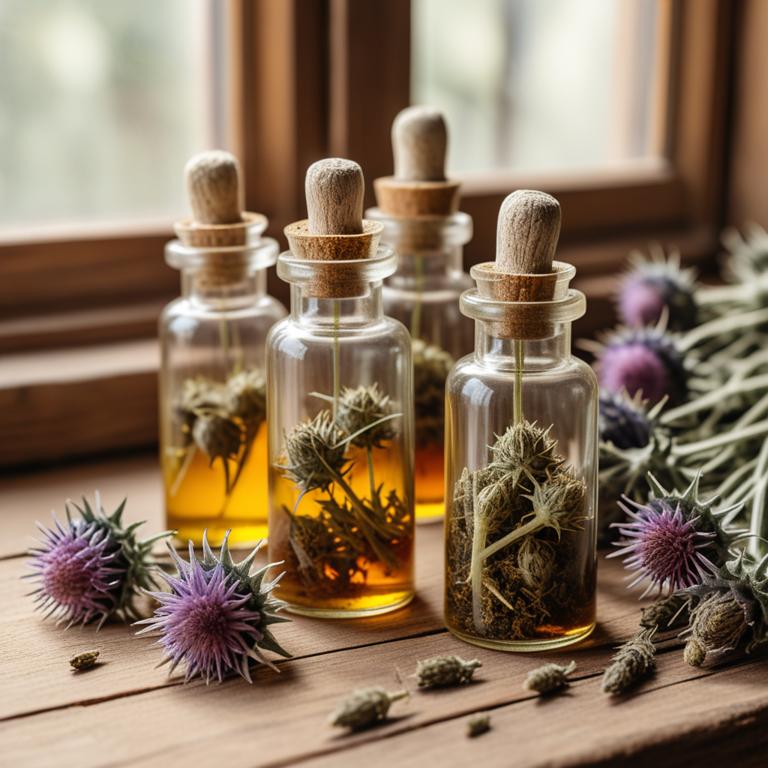
Herbal tinctures for inflamed gums are concentrated liquid extracts made from various plants and herbs, which are used to treat and soothe swollen and painful gums.
The benefits of using herbal tinctures to treat inflamed gums include their natural anti-inflammatory properties, ability to reduce pain and discomfort, and promotion of gum health.
Examples of herbal tinctures used to treat inflamed gums include Calendula tincture, which reduces inflammation and promotes healing, Echinacea tincture, which boosts the immune system and fights off infection, Myrrh tincture, which reduces inflammation and prevents infection, and Tea Tree oil tincture, which has antibacterial properties and helps to eliminate bacteria that cause infection.
Additionally, other herbal tinctures such as Clove tincture, Goldenseal tincture, and Sage tincture are also used to treat inflamed gums due to their antibacterial, anti-inflammatory, and antioxidant properties.
According to "Journal of International Society of Preventive & Community Dentistry", tinctures for inflamed gums can be made from medicinal plants such as Glycyrrhiza glabra, Aloe barbadensis Miller, and Curcuma longa, which have anti-inflammatory, antioxidant, antibacterial, and astringent properties, making them effective in reducing inflammation and promoting oral health.
Below there's a list of the 7 best herbal tinctures for inflamed gums.
- 1. Echinacea purpurea tinctures
- 2. Sanguinaria canadensis tinctures
- 3. Aloe barbadensis tinctures
- 4. Cinchona officinalis tinctures
- 5. Glycyrrhiza glabra tinctures
- 6. Salvia officinalis tinctures
- 7. Rosmarinus officinalis tinctures
Also you may be interested in...
TODAY'S FREE BOUNDLE
Herb Drying Checklist + Herbal Tea Shopping List + Medicinal Herbs Flashcards
Enter you best email address below to receive this bundle (3 product valued $19.95) for FREE + exclusive access to The Aphotecary Letter.
$19.95 -> $0.00
1. Echinacea purpurea tinctures

Echinacea purpurea tinctures have been traditionally used to treat inflamed gums due to their anti-inflammatory and antimicrobial properties, which help to reduce swelling and prevent infections.
The bioactive constituents of Echinacea purpurea, including alkylamides, caffeic acid derivatives, and polyphenols, have been shown to exhibit immunomodulatory and antioxidant effects that contribute to the treatment of inflamed gums.
By reducing inflammation and preventing bacterial growth, Echinacea purpurea tinctures can help to alleviate symptoms and promote healing of the affected area.
Regular use of Echinacea purpurea tinctures may also lead to improved overall oral health and reduced risk of further infections.
2. Sanguinaria canadensis tinctures
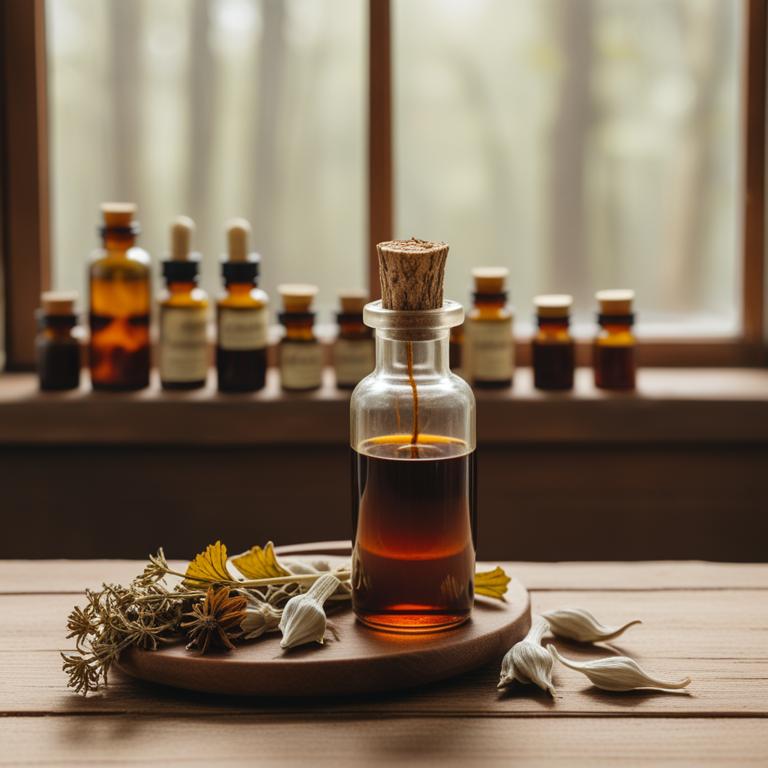
Sanguinaria canadensis tinctures have been traditionally used to treat inflamed gums, a common symptom of periodontal disease, by reducing inflammation and promoting healing.
The herbal preparation's anti-inflammatory properties, attributed to its bioactive constituents such as berberine, sanguinarine, and chelidonine, help to combat the inflammation and prevent tissue damage.
These bioactive constituents work by inhibiting the production of pro-inflammatory enzymes and cytokines, thereby reducing the severity of the inflammation and promoting the healing process.
The benefits of using Sanguinaria canadensis tinctures to treat inflamed gums include reduced pain, swelling, and bleeding, as well as improved oral health and a reduced risk of complications such as tooth loss.
3. Aloe barbadensis tinctures
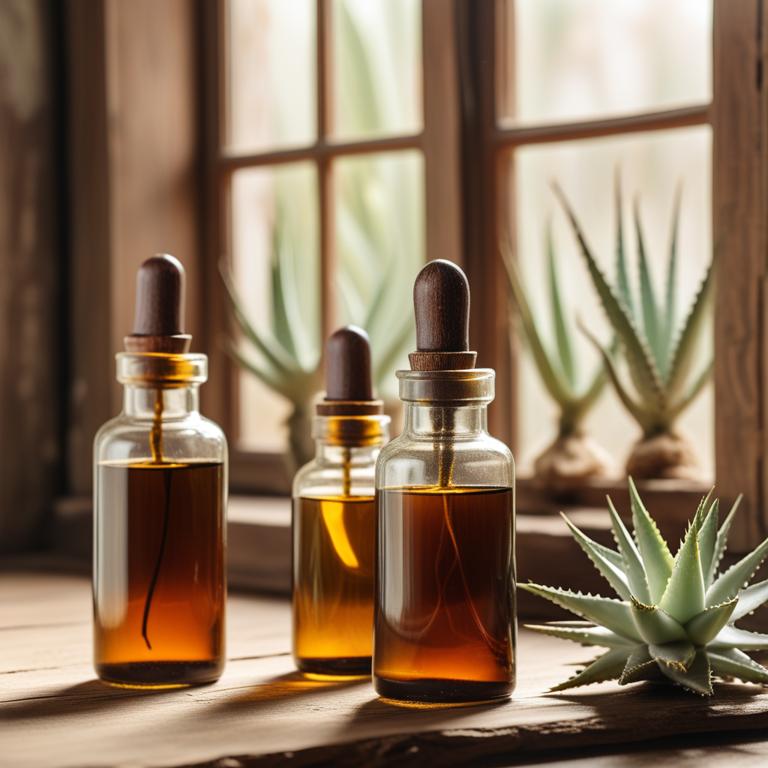
Aloe barbadensis tinctures have been used for centuries to treat inflamed gums due to its anti-inflammatory and antimicrobial properties.
The herbal preparation helps to treat this ailment by reducing swelling and promoting healing of the gums through its ability to soothe and calm irritated tissues.
Aloe barbadensis tinctures contain bioactive constituents such as aloin, aloe-emodin, and acemannan, which contribute to its anti-inflammatory and antimicrobial effects, helping to combat bacterial overgrowth and infection that can lead to inflamed gums.
The benefits of using Aloe barbadensis tinctures to treat inflamed gums include reducing pain and discomfort, promoting healthy gum tissue, and preventing further complications such as periodontal disease.
Related Study
According to "Iranian journal of basic medical sciences", Aloe barbadensis tinctures for inflamed gums have a large body of evidence supporting their effectiveness in reducing gingival inflammation and bleeding.
4. Cinchona officinalis tinctures

Cinchona officinalis tinctures are a herbal preparation that has been traditionally used to treat inflamed gums, also known as gingivitis.
The anti-inflammatory and antimicrobial properties of Cinchona officinalis tinctures help to reduce swelling and prevent infection in the gums, promoting a healthy oral environment.
The bioactive constituents of Cinchona officinalis, including quinine and quinidine, have been shown to exhibit anti-inflammatory and antimicrobial activities, which contribute to their therapeutic effects.
The benefits of using Cinchona officinalis tinctures to treat inflamed gums include reduced inflammation, prevention of infection, and promotion of gum healing, making it a valuable natural remedy for maintaining oral health.
5. Glycyrrhiza glabra tinctures

Glycyrrhiza glabra tinctures have been traditionally used to treat inflamed gums, a common ailment characterized by swelling and pain in the gums.
The anti-inflammatory and antibacterial properties of these tinctures help to reduce inflammation and prevent infection, making them an effective remedy for this condition.
The bioactive constituents responsible for these effects include glycyrrhizin, a triterpenoid saponin that exhibits anti-inflammatory and antimicrobial properties, and flavonoids such as luteolin and kaempferol, which have antioxidant and anti-inflammatory activities.
By using Glycyrrhiza glabra tinctures, individuals can benefit from reduced pain and inflammation, improved gum health, and a decreased risk of complications such as gum recession and tooth loss.
Related Study
According to the Journal of International Society of Preventive & Community Dentistry, Glycyrrhiza glabra tinctures for inflamed gums may be beneficial due to its anti-inflammatory and antioxidant properties, which can help to reduce gingival and periodontal diseases.
6. Salvia officinalis tinctures
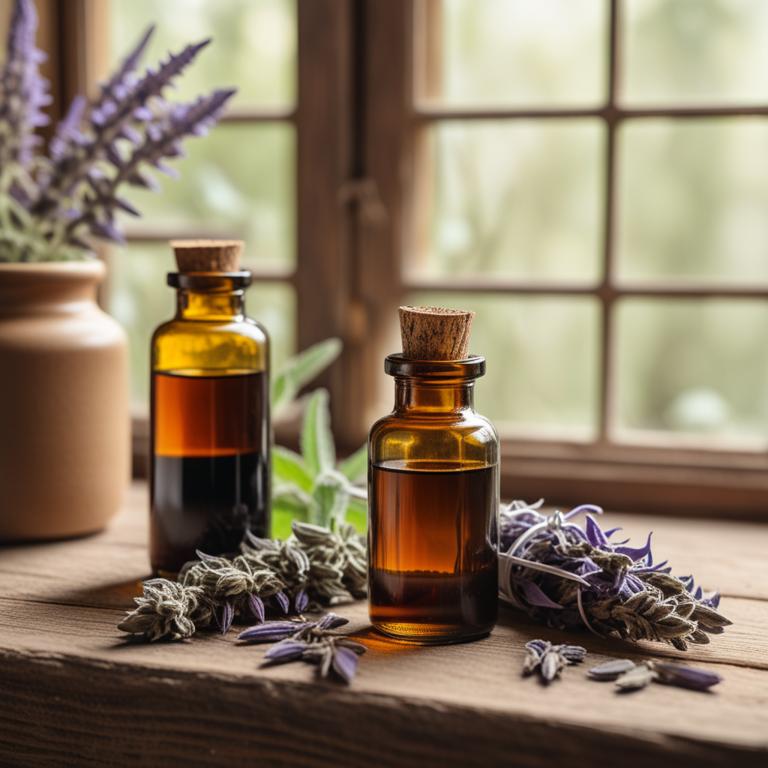
Salvia officinalis tinctures have been traditionally used to treat inflamed gums, an ailment often caused by poor oral hygiene, bacterial infections, or inflammatory responses.
The anti-inflammatory and antimicrobial properties of Salvia officinalis tinctures help to reduce swelling and combat bacterial growth, thereby alleviating symptoms of inflamed gums.
The bioactive constituents of Salvia officinalis, including rosmarinic acid, carnosic acid, and ursolic acid, possess potent antioxidant and anti-inflammatory activities that contribute to its therapeutic effects.
By using Salvia officinalis tinctures, individuals can benefit from reduced pain, inflammation, and infection, as well as improved oral health and overall well-being.
Related Study
According to "Avicenna journal of phytomedicine", Salvia officinalis tinctures may have antibacterial properties that can help inhibit the formation of oral biofilm, which could be beneficial for inflamed gums.
7. Rosmarinus officinalis tinctures
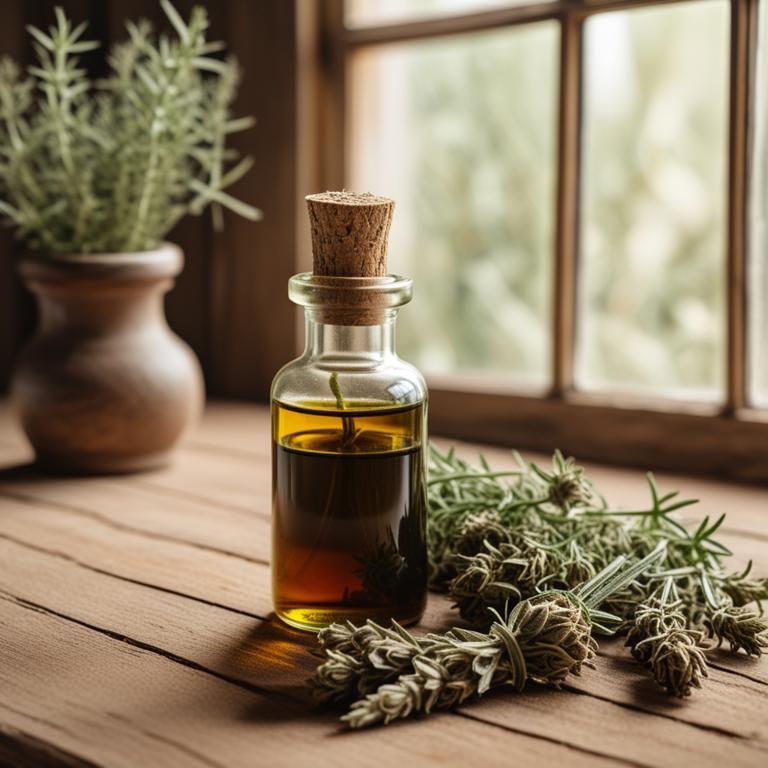
Rosmarinus officinalis tinctures have been traditionally used to treat inflamed gums, also known as gingivitis, due to their anti-inflammatory and antimicrobial properties.
The bioactive constituents, including rosmarinic acid, carnosic acid, and ursolic acid, in these tinctures help to reduce inflammation, fight off bacterial infections, and promote healing of the gums.
By using Rosmarinus officinalis tinctures, individuals can experience relief from swollen and painful gums, as well as a reduction in bleeding and discomfort.
The benefits of using these tinctures include reduced inflammation, improved gum health, and a lower risk of developing more severe gum conditions.
Related Study
According to "PloS one", Rosmarinus officinalis tinctures for inflamed gums may be effective due to its high antibacterial activity, with minimum inhibitory concentrations (MIC) ranging from 0.08-5.00 mg ml-1.